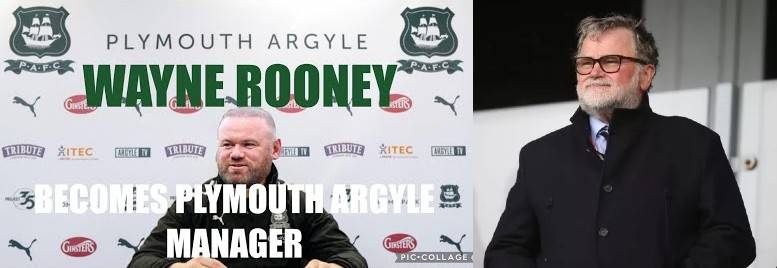- BBC1 wrote:
- Tgwu wrote:
- Would the buckets brigade,GT and the auctioneer be willing to help the AFT to reach the total that they would need to rise to buy Home Park.
I don't rise to the click bait toilet paper website. You are the master of copy and paste sir. Care to help me out with this article please?
James Brent says it makes sense if Plymouth Argyle own Home Park againJAMES BRENT believes it would make financial sense for Plymouth Argyle to become the owners of Home Park again.
But the Pilgrims' chairman has stopped short of saying whether the club will look to take up an option to acquire the stadium from Plymouth City Council in October.
A recent survey of supporters showed that around 50 per cent were in favour of a buy-back, while 30 per cent preferred public ownership.
The council paid Argyle £1.6 million for Home Park in 2011 as part of a rescue deal which kept the then financially-stricken club afloat.
Argyle now have a 30-year lease with an option every five years to purchase the stadium for 12 times the rent, which is currently £135,000 per annum.
The first chance for them to do that is in October – which will be the fifth anniversary of Brent's takeover of the club.
He told Herald Sport: "I personally think it is in the interests of Plymouth Argyle Football Club to own its stadium.
"I think that statement is justified on a number of accounts, part of which is financial.
"If we are not paying the rent – which goes up in October if we don't buy the stadium – we can spend that on the football budget.
"It drives other things in terms of your behaviour to invest.
"We, as a club, are more likely to invest in our own asset than an asset owned by a third party.
READ NEXT: Argyle name goalkeeper Luke McCormick as their new captain
"So I think the principle of owning the stadium is a very good one."
Supporters who are against Argyle buying back Home Park point to the period leading up to the club's financial collapse in 2011 and ended up in administration.
At that time, the Pilgrims' previous regime borrowed a substantial sum of money against their ownership of the stadium.
Brent does not believe that should be an area of concern.
He said: "The last time the club owned its stadium it borrowed money from a bank against it.
"I'm not enthusiastic about bank-borrowing football clubs. I think it is different if it comes from shareholders or other stakeholders."
Brent does not accept that because the club owned Home Park when it went into administration in 2011 it makes it more likely the same could happen again in the future.
Home Park was bought by Plymouth City Council from Argyle in 2011
He said: "I could run the argument that when the club went into administration it had a green pitch. It has a green pitch now.
"It doesn't mean it's likely to go into administration because it has got a green pitch.
"I have spent many hours understanding why Argyle went into the administration.
"The borrowing of money from Lombard against the stadium was not a driver of the administration. There were other reasons.
"Not withstanding that, I would not be in favour of borrowing money from a lending institution to buy back the stadium."
So, will Brent take up that option in October. "Wait and see," he replied.
"We have a legal option to repurchase that the council is clearly very familiar with.
"There is a process to exercise that option, which they are familiar with as well."
Brent added: "There are two decisions that need to be taken. The first is whether the board of Plymouth Argyle Football Club think it is a good or a bad thing for the club to own its own stadium.
"There is a second question as to whether the investors want to support Plymouth Argyle Football Club to buy back the stadium."
Those investors are Brent and three of the other club directors – Simon Hallett, Tony Wrathall and Richard Holliday.
The Argyle Fans' Trust are against Home Park being sold by the council.
Earlier this year they successfully pushed for the land and buildings at Home Park to be listed as an Asset of Community Value.
That means should the council decide to sell Home Park, either to Brent or any other party, it would have to be made public.
Then a 'community interest group' such as the AFT, would have six weeks to ask to be treated as a potential bidder.
If they did, the sale could not take place for six months and would allow the Trust, for example, the chance to come up with an alternative proposal.
At the end of this period the council would still decide whether to sell, to whom and for how much, but the Trust argue it would be a transparent process
